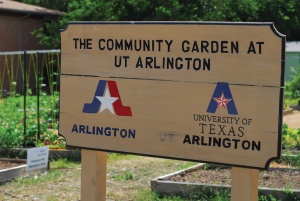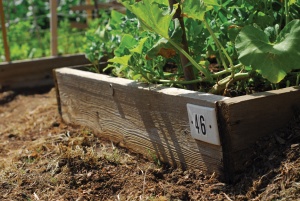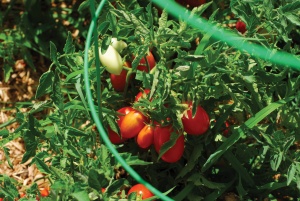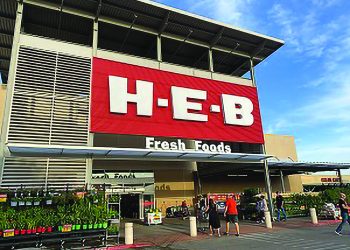
Summer is the season of fresh fruits and vegetables. Many North Texans enjoy maintaining a backyard garden. Now, thanks to a collaboration between the City of Arlington and the University of Texas at Arlington, even those with a small or no yard can also grow their own produce. For $35 per calendar year, individuals can rent a plot in the organic Community Garden at UT Arlington located on Summit Avenue.
“It creates long-lasting friendships and the feeling that they are doing something good for the community,” says Meghna Tare with the UT Arlington Office of Sustainability. “I also think it is a very good education tool to teach the younger generation about the importance of growing food, and organic gardening.”

The Community Garden was designed in 2010 and built on campus in 2011. The university was chosen as the site because it had the available land. The city contributed the initial funding needed to start the project. Both help run the program.
The garden itself is a half-acre in size. There are 78 individual plots, each measuring 16 feet by 4 feet. The owners are responsible for the upkeep and maintenance of their individual plot as well as the garden’s common areas. The city and university provide the water and all support, such as a stocked tool shed, a pavilion, mulch, and soil amendment from UTA’s award-winning composting program.
According to the Office of Sustainability, the program annually composts 30 tons of food waste from on-campus dining services and off-campus coffee shops and hospitals, as well as yard waste collected from campus ground crews. The compost is used across the campus.
“I love the fact that student groups come together occasionally for cleanup and volunteer at the garden,” says Tare. “And the fact that we offer some basic gardening education and teach how to make a rain barrel.”
Wendy Pappas, a Certified Arborist with the Arlington Parks and Recreation Department, is the manager in charge of the garden’s grounds maintenance.
“I love seeing the community come together, helping each other out and building a brighter future,” says Pappas. “I have met some wonderful people that love gardening and love the community the garden has created.”

There are no rules as to what you grow in the garden. In fact, Pappas says she sees a variety of crops. “We have many different gardeners from many different backgrounds and areas,” she says, “so a lot will grow vegetables they are familiar with and that they use to cook.”
The only requirement is that plot owners must donate at least half of the food they grow to Mission Arlington, the garden’s designated food bank program.
“I think community gardens are very essential for every community,” says Tare. “They help reduce Heat Island effect, provide green space and a sense of community, help with food to those in need and also help educate.”
At this time, the garden is 100 percent full. But you can be added to the waitlist.
For more information, visit the Arlington Parks & Rec Department website, naturallyfun.org/community-garden-of-ut-arlington.















